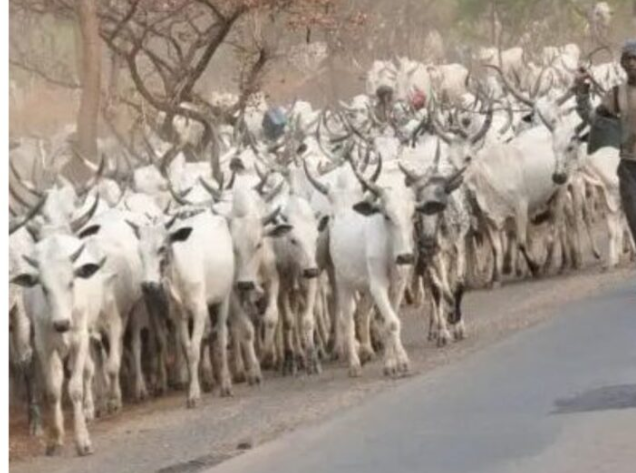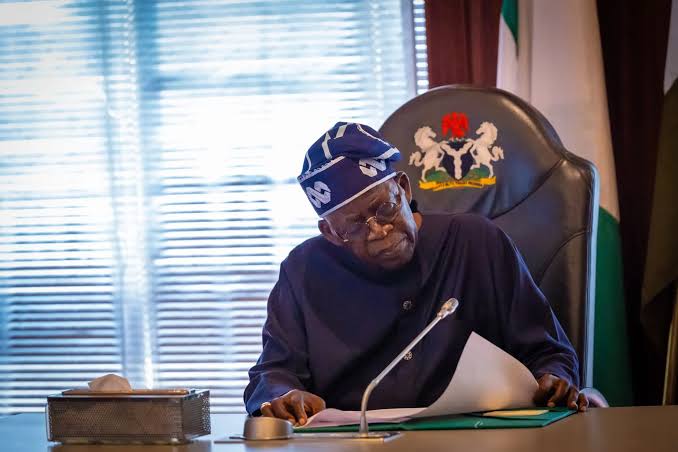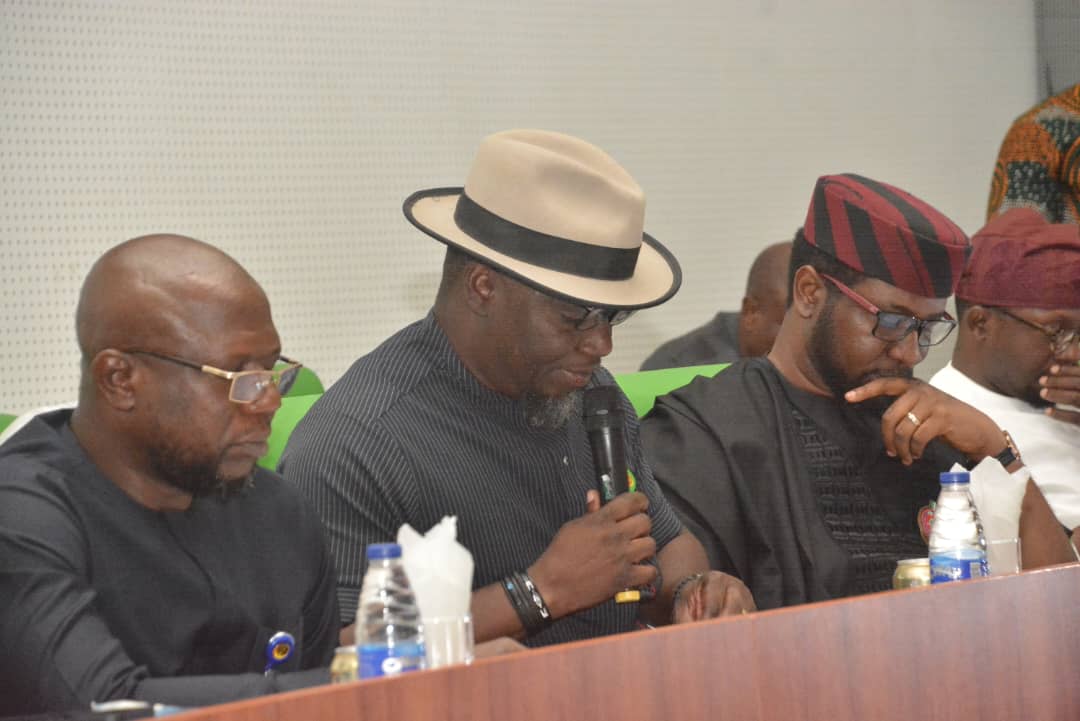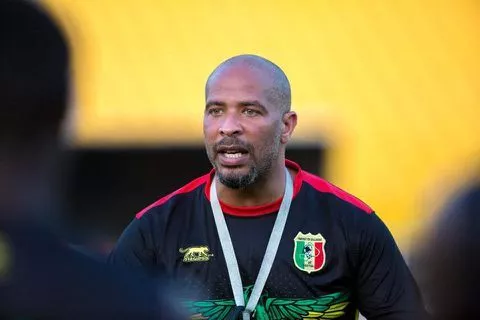News
Ministry not needed to boost livestock

By Kayode Sanni-Arewa
PRESIDENT Bola Tinubu’s creation of a new Ministry of Livestock Development again underscores the inherent contradictions in efforts at resource management.
Besides struggling with sundry economic woes including a debt of N121 trillion, expanding the government with the creation of yet another ministry, which brings the number to a record 49, suggests a lack of commitment to trimming governance costs.
The Federal Government already runs over 1,000 ministries, departments, and agencies including foreign missions per Federal Civil Service Commission. Most are poorly funded, ineffective, and perform overlapping functions. Reversing this anomaly by merging some MDAs was the kernel of the Steve Oronsaye Report that Tinubu promised to implement. The President is now going in the opposite direction. So, the ministry is not needed.
The new MLD is one of the 21 recommendations of the National Livestock Reforms Committee set up in September 2023 under Abdullahi Ganduje, chairman of the ruling All Progressives Congress with a mandate to suggest solutions to the age-long herders attacks on farmers.
The committee recommended the resuscitation of grazing reserves and other methods of land utilisation as part of the conflict mitigation and resource utilisation agenda. The rationale for the new ministry’s creation is a strong institution to implement these and other recommendations.
The ministry seems to be a political gambit designed to appease the northern bloc. It revives the contentious RUGA policy of the Muhammadu Buhari administration (2015-2023).
The herders’ conflict was triggered by decreasing access to land and economic and sociocultural divisions between populations. Crucially, it is a direct result of the failure of cattle breeders and owners to invest in modern animal husbandry techniques and models but prefer a zero-cost approach to the detriment of sedentary farmers. This is the issue that must be addressed.
The conflicts have resulted in over 60,000 deaths across 22 states since 2001 according to researchers from the University of Abuja and the displacement of hundreds of thousands, especially in the North-Central.
This is due to declining pasturelands, desertification, expanding populations, poor agronomy practices, the proliferation of small arms and crime in rural communities, and the breakdown in traditional conflict resolution mechanisms of land and water disputes. Several unregulated militias have sprung up to protect communities, farms, and cattle exacerbating the general insecurity across the land.
The livestock reforms committee recommended the resuscitation of the 415 grazing reserves, which cover about six million hectares in the 19 northern states of which only 115 have been developed. Miyetti Allah, the umbrella body of cattle breeders has urged states to make the land available since pastoralists do not have any land to settle.
Without a doubt, cattle farming is a big business. More than 200 million cattle live and graze in Brazil, bringing $123 billion into the country’s economy annually, about 8.5 per cent of GDP. In 2023, Brazil further boosted agricultural production with $91.8 billion in financing for farmers and ranchers to expand an already formidable sector.
The government cannot manage ranches having failed woefully with past experiments such as the Mokwa Cattle Ranch established in 1964 specifically for fattening purposes by the German and Nigerian governments with full compliments of infrastructure, facilities, and machinery at European Union standards. It collapsed in 2004 under the weight of mismanagement.
The solution lies in commercial cattle ranches, which must be the prerogative of the states and private investors. The idea of grazing routes should be buried. The livestock ministry should not be a compensation for herders who have driven cattle into people’s farms to destroy crops.
The government should limit itself to technical and financial interventions to support settled ranchers. The nomadic lifestyle to support cattle breeding is incompatible with 21st-century living apart from the conflicts it generates.
News
VIDE; Nigeria’s foreign relations: So far, Tinubu has showcased good salesmanship-Dr Nwambu

… but we’re yet to feel the impact now
Director General of Centre for Credible Leadership and Citizens Awareness CCLCA, Dr Gabriel Nwambu has said President Bola Tinubu has showcased excellent salesmanship globally but Nigerians are yet to feel the impact.
Nwambu disclosed this in a chat with TVC where he outlined Tinubu’s moves so far in international relations.
Watch video below:
News
Budget Defense: Reps Decry Poor Funding for Environment Ministry

…call for action on key projects
By Gloria Ikibah
The House of Representatives has expressed dissatisfaction with the inadequate release of funds to the Ministry of Environment, and described it as a setback to addressing the country’s pressing environmental challenges.
The Chairman House Committee on Environment, Rep. Julius Pondi, who stated this during the Ministry’s 2024 budget defence, highlighted the critical issues of deforestation, pollution, erosion, and the effects of climate change, and said that insufficient funding has hindered meaningful progress in these areas.
He also raised concerns over the removal of the Environmental Health Council of Nigeria (EHCON) and 13 professional bodies from budgetary allocations effective January 2024. While the other bodies were reinstated, EHCON remains excluded.
Rep. Pondi therefore urged the Minister of Environment to work with the Committee to ensure EHCON’s reinstatement.
“The outcomes of this budget review will set the tone for planning and resource allocation in the 2025 Budget.
“As a Committee, we are disposed to increased budgetary allocations for this critical sector, in as much as we see key projects that are envisioned to strengthen climate resilience, combat pollution, enhance community awareness, and ensure accountability in the Year 2025 Budget Proposal of the Ministry and its Agencies,” ,” Pondi stated.
He reminded the Ministry of its constitutional obligations, referencing Section 80(4) of the Constitution, which mandates that funds must be withdrawn from the Consolidated Revenue Fund only as prescribed by the National Assembly.
Pondi further stressed the importance of the budget defence session in ensuring transparency and accountability, noting its role in evaluating progress made, addressing challenges, and providing actionable inputs for future budgets.
He emphasized that these environmental issues have deprived thousands, particularly in agrarian regions, of their livelihoods and their ability to contribute to national development.
“You may recall that the House of Representatives, on various occasions at plenary, deliberated motions ranging from erosion, desertification, and flood disasters in many parts of the country, necessitating government intervention through the Ministry of Environment and other Agencies.
“Our primary focus is to evaluate how the financial resources allocated have been utilized to achieve set objectives. This session will enable us to identify progress made in implementing projects and programs across key environmental sectors, address challenges that may have hindered the achievement of goals, and provide actionable input in the year 2025 Budget,” he added.
In response, the Minister called for increased budgetary allocations to enable the Ministry to fulfill its mandate effectively.
“In 2024, the Ministry installed about 2,200 units of solar street lights in various communities and 45 solar-powered boreholes to provide clean water for the people,” Lawal disclosed.
He further noted the installation of 5kV solar power systems in five institutions, including Ekpoma, Edo State; Ife, Osun State; Nsukka, Anambra State; Zaria, Kaduna State; and Abuja.
The Committee pledged to continue its oversight functions and collaborate with the Ministry to address environmental challenges and ensure optimal utilization of allocated resources.
News
Just in: Sack newly appointed Super Eagles coach now, NANS tell NFF

Members of the National Association of Nigerian Students (NANS) on Thursday protested the appointment of Eric Sekou Chelle as the substantive coach of the Super Eagles.
NANS held a protest on Thursday at the Moshood Abiola International Stadium in Abeokuta to register their displeasure, calling on the Nigeria Football Federation (NFF) to reverse the appointment with immediate effect.
Led by the clerk of the Senate, Abdul Yekini Odunayo, NANS condemned the appointment and said it fell short of the expectations of Nigerians and football enthusiasts.
The students also threatened to embark on a nationwide protest to drive home their demand and called for the appointment of a better coach who tactical and can harness the abundant talents abound in the country.
“We are gathered here today to address an issue that has not only baffled us but has also drawn widespread disapproval from Nigerian students and sports enthusiasts alike,” Odunayo said.
“On behalf of the National Association of Nigerian Students, I, Abdul-Yekinn Odunayo, Clerk of the Senate of NANS National Headquarters, wish to categorically express our displeasure over the appointment of Eric Sekou Chelle as the new head coach of the Super Eagles.
“This appointment, as announced by the Nigeria Football Federation (NFF), is not only unacceptable but also a slap in the face of our nation’s abundant pool of local coaching talent. Consequently, NANS, as the voice of the Nigerian students, is compelled to organise a national protest to demand a reversal of this decision.”
On Tuesday, NFF confirmed the appointment of Éric Sékou Chelle as Head Coach of Nigeria’s Super Eagles.
His appointment is with immediate effect, and he has the responsibility of guiding the Super Eagles to earn a ticket to the 2026 FIFA World Cup finals, with the next round of matches (Matchdays 5 & 6) taking place in March.
Chelle, who won five caps for the Aiglons of Mali and coached clubs such as GS Consolat, FC Martigues, Boulogne and MC Oran, has been Head Coach of the Aiglons since 2022.
Chelle was appointed manager of Mali and was dismissed on 13 June 2024.
-

 News23 hours ago
News23 hours agoNigeria Won’t Break Ties With France Over Niger, Others
-

 News23 hours ago
News23 hours agoPortugal Football Club Signs on 19-Year-Old Nigerian- born Footballer, Yaqub Usman-Malah
-

 News20 hours ago
News20 hours agoAfter firing 27 officers with itchy fingers, EFCC reportedly loses over $350k, jewelries
-

 News23 hours ago
News23 hours agoYouth Confab Is A Plan To Compensate Seyi Tinubu’s Friends, Not Nigerian Youths – Sowore
-

 News23 hours ago
News23 hours agoCourt jails man seven years for stealing phone
-

 Metro16 hours ago
Metro16 hours agoTwo Sisters Arrested For Setting Father On Fire After Rape
-

 News19 hours ago
News19 hours ago59 Traff!cked Kids, Aged 4 To 12, Found In Bus In FCT
-

 Metro15 hours ago
Metro15 hours agoAnambra Catholic Priest Resigns, Becomes Native Doctor









